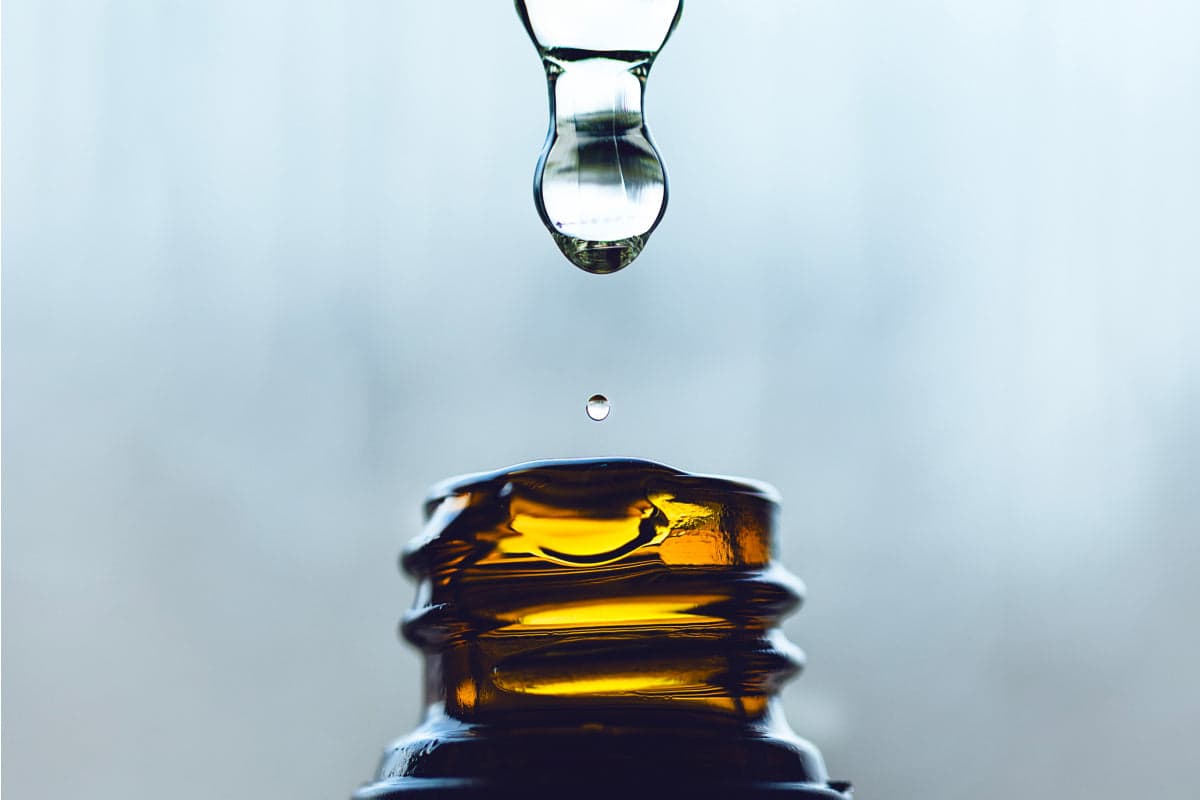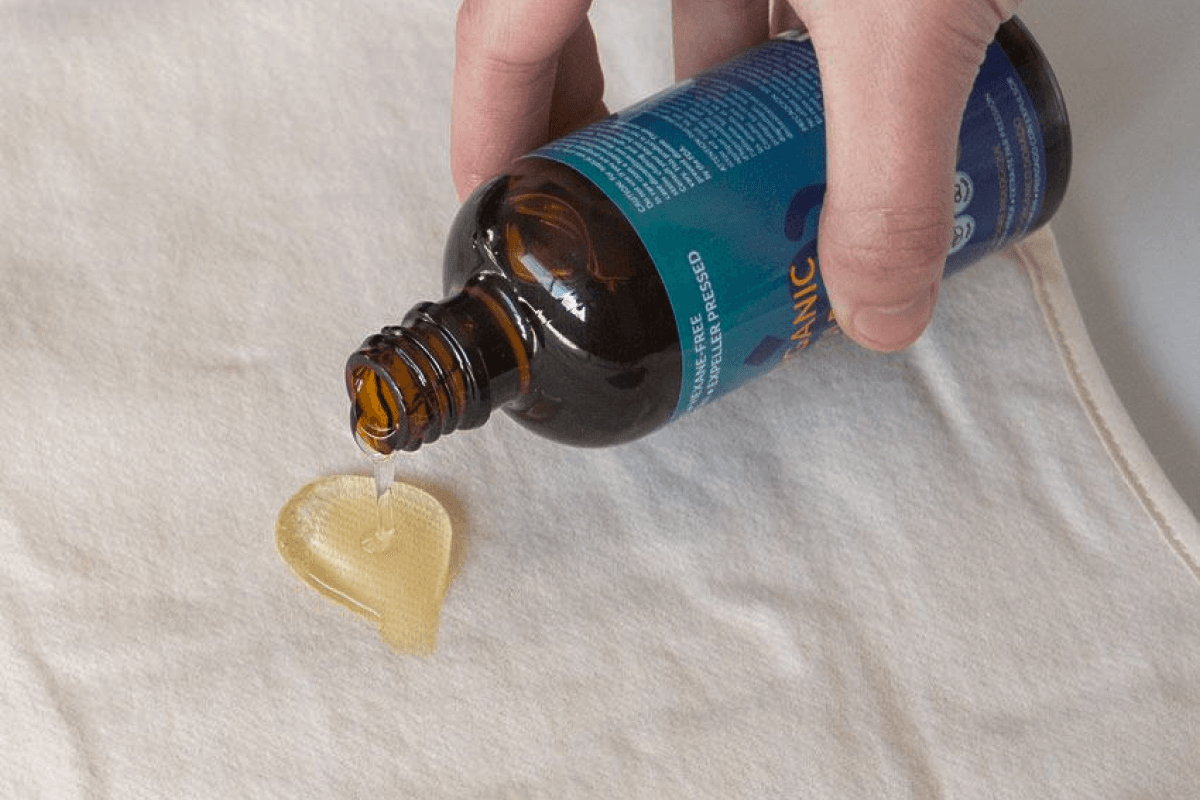Is TikTok’s Naval Pulling With Castor Oil Trend Worth Trying?

Written by: Chloe Gray
Written on: November 19, 2024
That naval pulling with castor oil is trending shouldn’t come as a surprise. A huge 81% of people regularly suffer with digestive symptoms like bloating, and nearly 50% of people report symptoms so extreme they negatively impact their body image, daily activities and social life, according to a study from the University of Cambridge.
And just like detox teas and green juices that have come before it, naval pulling with castor oil promises a simple solution for those in pain.
Just like with all online health trends, you need to take a sceptical look at whether naval pulling with castor oil is worth your time and energy before diving in.
What is castor oil?
Castor oil is a thick, gloopy, golden oil that you can find in most wellness stores.
“Castor oil is a natural oil extracted from the seeds of the Ricinus communis plant,” explains Eleanor Hoath, Registered Naturopathic Nutritional Therapist and Healf’s editor. “It's rich in ricinoleic acid, which gives it its unique consistency and anti-inflammatory properties.”
Castor oil has long been associated with various health and wellness benefits. “You’ll usually find castor oil in beauty and wellness products as it's known for promoting hair and skin health, helping with minor wounds and even acting as a mild laxative if ingested,” says Hoath.
What is naval pulling with castor oil?
Naval pulling with castor oil involves massaging the oil into your belly button. The claim is that the castor oil can be absorbed into the skin to reach internal organs, improving their function.
While it’s currently trending, naval pulling isn’t new. Ayurvedic practices have long believed that the navel is a vital energy centre, known as the Pechoti gland, which connects the digestive, respiratory and reproductive systems. It’s thought that massaging this area sends the beneficial oils to all of these areas in the body.
People compare castor oil to GLP-1 Medications such as Ozempic because both have been associated with weight management, albeit through very different mechanisms. Ozempic, a prescription medication primarily used to treat type 2 diabetes, can aid weight loss by regulating blood sugar and reducing appetite. In contrast, castor oil, traditionally known as a laxative, is believed by some to have a "cleansing" effect that can lead to temporary weight loss due to its impact on digestion and water retention. While this comparison is largely anecdotal and lacks scientific backing, it reflects the trend of people seeking natural alternatives to pharmaceutical interventions for weight management.
Naval pulling with castor oil: what are the benefits?
A quick scroll through TikTok might convince you that naval pulling with castor oil is a game-changing health technique. There are over 63.5 million posts and counting associated with naval pulling on the app, with many videos showing the creator's stomachs flattening as they continue with their naval pulling routines. These creators also share compelling stories of reduced stomach pain, toilet troubles, menstrual cramps and weight loss.
“Traditionally, naval pulling was used to make the intestines slippery and lubricated for easier bowel movements. There’s also a belief that this method can relieve various ailments like bloating, digestive discomfort, menstrual pain and even help with relaxation,” says Hoath.
Unfortunately, “there’s little scientific evidence that navel pulling can achieve these benefits,” adds Hoath.
That’s not to say the practice is by any means pointless. It’s a safe practice for most people – though always check with your health advisor before beginning any new and novel health routine.
Even without robust research, you may even feel some effects of naval pulling. “The ritual of applying it could help reduce stress, which can aid digestion anecdotally,” says Hoath. With stress being one of the leading causes of digestive issues, taking time for a gentle stomach massage may soothe your nervous system and improve outcomes.
Stomach massage is also shown to be a useful tool for improving constipation and bloating – not necessarily because of oil absorption but rather the pressure applied to your stomach, which can stimulate contractions to help move stools through the digestive tract.
Alternative remedies for better digestion
If your digestion needs support, there are plenty of other science-backed changes you can make to your nutrition and lifestyle.
“Eating a diet high in fibre — like fruits, vegetables, and whole grains — and generally supporting a healthy gut microbiome is essential for good digestion. Regular, gentle exercise, like walking or yoga, helps reduce bloating and supports digestive health by stimulating natural movement in the intestines,” recommends Hoath.
“Staying hydrated and drinking herbal teas like ginger or peppermint can also soothe the digestive tract. The biggest one for me is also practising mindful eating, taking time to chew and enjoy meals without distraction can prevent bloating and aid digestion naturally.”
If you are worried about your gut health, make sure you talk to a registered health practitioner.
This article is for informational purposes only, even if and regardless of whether it features the advice of physicians and medical practitioners. This article is not, nor is it intended to be, a substitute for professional medical advice, diagnosis, or treatment and should never be relied upon for specific medical advice. The views expressed in this article are the views of the expert and do not necessarily represent the views of Healf
This article is for informational purposes only, even if and regardless of whether it features the advice of physicians and medical practitioners. This article is not, nor is it intended to be, a substitute for professional medical advice, diagnosis, or treatment and should never be relied upon for specific medical advice. The views expressed in this article are the views of the expert and do not necessarily represent the views of Healf






